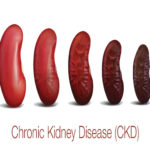- Iron deficiency in children can affect their growth and development and also lead to anemia
- Persistent iron deficiency in kids can hamper the synthesis of haemoglobin leading to iron deficiency anemia.
- Quality of diet plays an important role in kid’s development
India
healthysoch
New Delhi, May 06, 2022:
Iron deficiency in kids is no longer associated with socio-economic status of a family as doctors at Paras Hospitals have revealed that they have been witnessing lots of iron deficiency cases in kids from elite backgrounds in their OPDs.

Dr Manish Mannan, HOD, Paediatrics and Neonatology, said parents don’t even realise their kids who are suffering from severe iron deficiency despite having prominent symptoms of pale skin, fatigue, poor appetite, poor growth, lack of concentration, fidgetiness, irritable behaviour to name a few.
Iron deficiency in children has become a rampant health issue in urban India. It can occur at many levels, from a mild deficiency all the way to iron deficiency anaemia — a condition in which blood doesn’t have enough healthy red blood cells. Untreated iron deficiency can affect a child’s growth and development.
Every day in our OPD, we are seeing iron deficiency in kids and we feel over 30% children of upper socio economic families may suffer from iron deficiency. Parents don’t realise their kids are having iron deficiency because most signs and symptoms of iron deficiency in children don’t appear until iron deficiency anaemia occurs. Diet quality is important for efficient haemoglobin synthesis. Besides iron, other nutrients are also essential,” said Dr Manish Mannan, HOD, Paediatrics and Neonatology, Paras Hospitals, Gurugram.
It has been observed that there is significant affinity to milk and milk product in Northern part of India. Milk after one year of age is predominantly a source of calcium. Green vegetables (sans potato) are a very important component of daily diet. The daily diet should have carbohydrates, proteins, vegetables and fruits in equal proportion.
Iron deficiency can be diagnosed through blood tests. It is recommended that all infants should be tested for iron deficiency starting between ages 9 months and 12 months and, for those who have risk factors for iron deficiency, again at later ages. Depending on the screening results, your child’s doctor might recommend an oral iron supplement or a daily multivitamin or further testing along with dietary modification.
healthysoch







